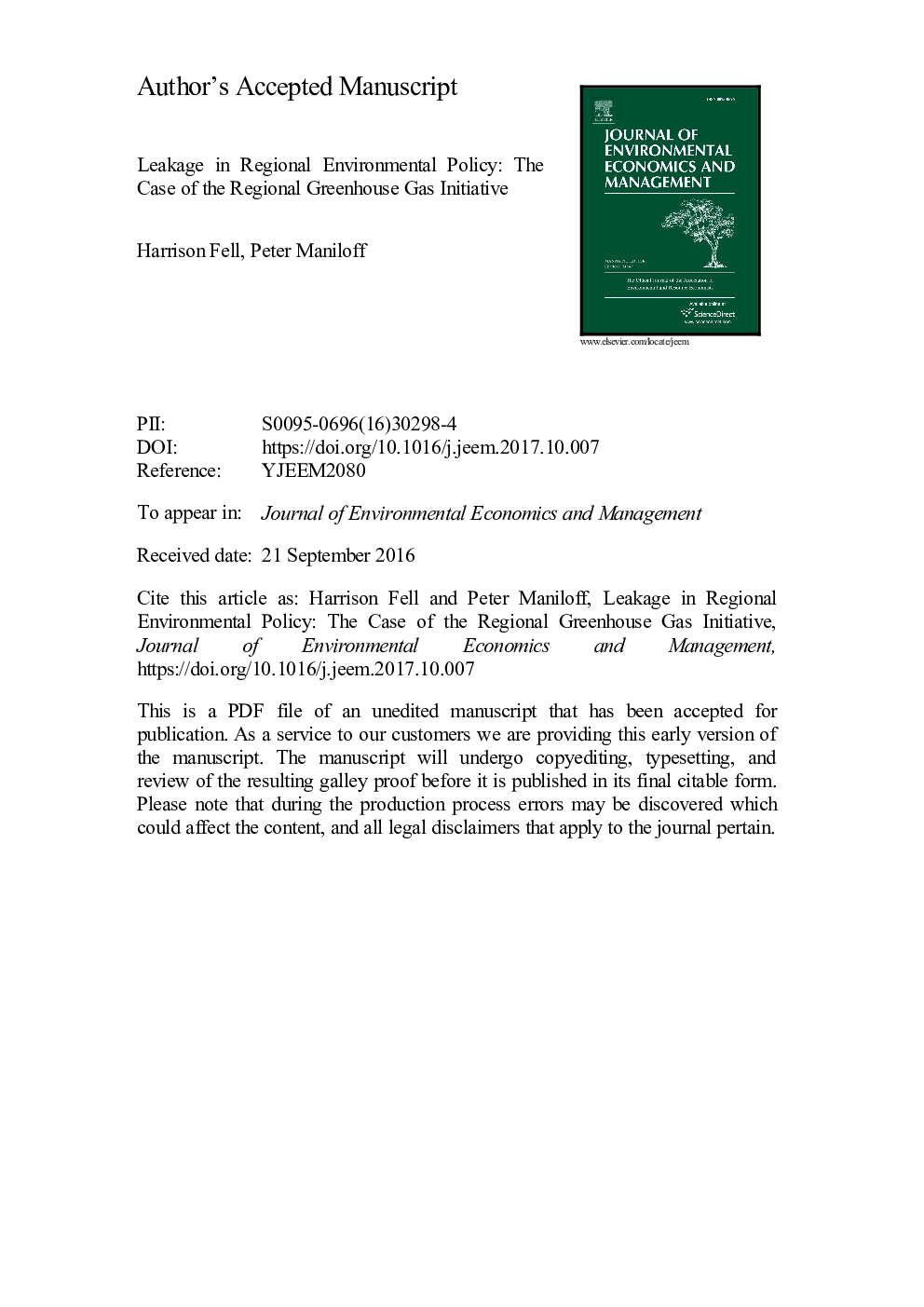| Article ID | Journal | Published Year | Pages | File Type |
|---|---|---|---|---|
| 7361436 | Journal of Environmental Economics and Management | 2018 | 57 Pages |
Abstract
Subglobal and subnational greenhouse gas policies are often thought to be less effective than comprehensive policies as production and emissions of trade exposed industries may move from the regulated to the unregulated regions, a process referred to as “leakage”. Leakage negates some emission reductions from the regulated regions. We use detailed electricity generation and transmission data to show that this is the case for the Regional Greenhouse Gas Initiative (RGGI), a CO2 cap-and-trade program for the electricity sector in select Northeastern U.S. states. More specifically, our results indicate that RGGI induced a reduction in coal-fired generation in RGGI states and an increase in NGCC generation in RGGI-surrounding regions. This finding suggests that the pollution haven hypothesis holds for state-level variation in environmental policy, even when compliance costs are low.
Related Topics
Social Sciences and Humanities
Economics, Econometrics and Finance
Economics and Econometrics
Authors
Harrison Fell, Peter Maniloff,
